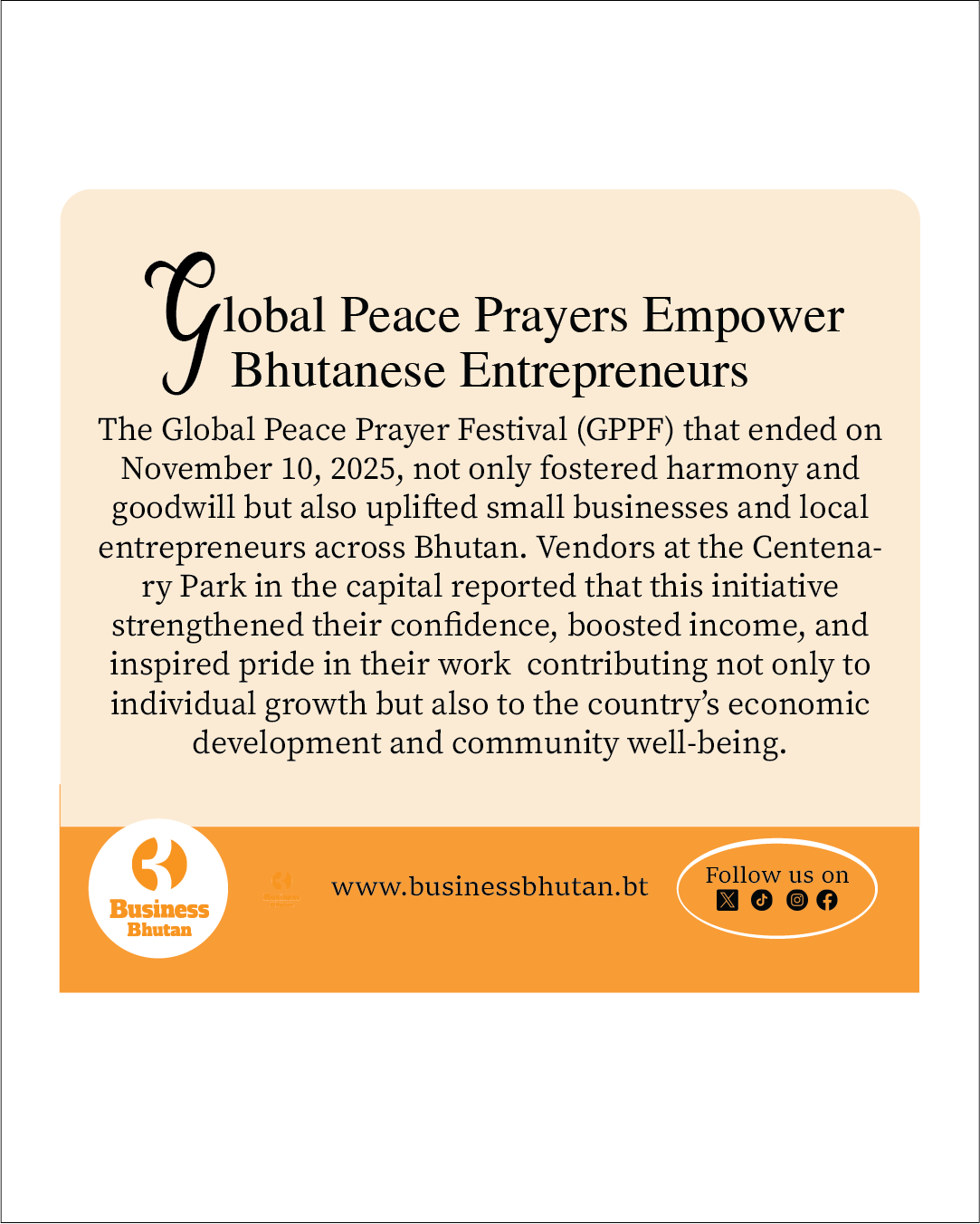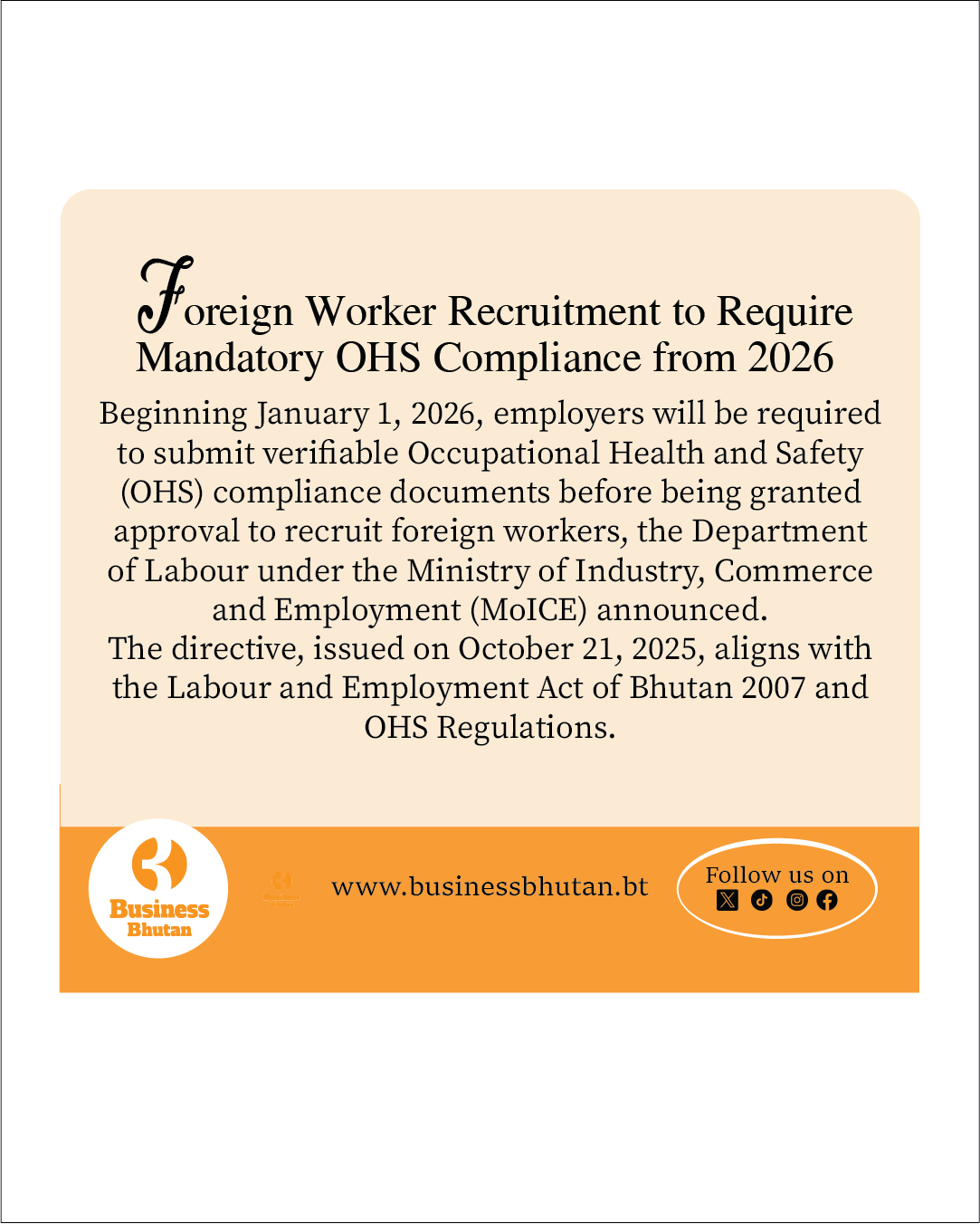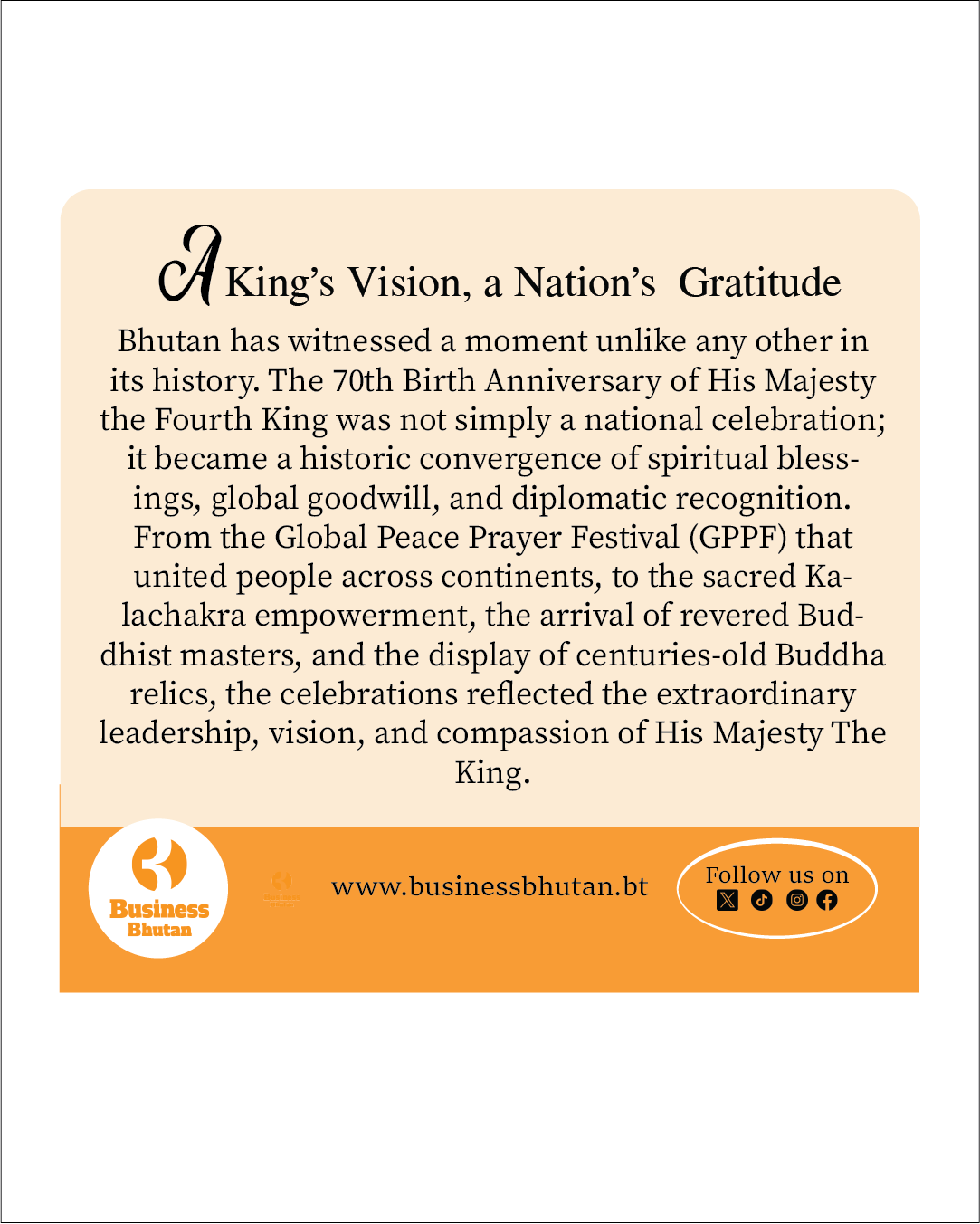The Global Peace Prayer Festival (GPPF) that ended on November 10, 2025, not only fostered harmony and goodwill but also uplifted small businesses and local entrepreneurs across Bhutan. Vendors at the Centenary Park in the capital reported that this initiative strengthened their confidence, boosted income, and inspired pride in their work — contributing not only to individual growth but also to the country’s economic development and community well-being.
Tshering Yangchen, a vendor of Touch from Heaven, shared her gratitude: “At one point, I earned about Nu 8,000 in a day. The support from the GPPF brought more customers and stability to our business.”
Similarly, Kinley Pelden, owner of Yiga Chocolate, spoke of her expanding business: “Our marketing went very well. We sold on an order basis, distributed to duty-free shops, and promoted our products in the market. At the Global Peace Prayer, I earned around Nu 1,000. Many people love Bhutanese chocolate, which boosted both my confidence and sales.”
Pema Zangmo, proprietor of Bhutan B’H’Tea, highlighted the growing demand for authentic Bhutanese tea: “Our business thrived with many Bhutanese customers purchasing from us. We make around Nu 1,000 a day. With our production-focused factory, we are expanding both wholesale and retail sales within Bhutan and beyond.”
Ama, by Deki Natural Dyes, also witnessed promising growth. Though exact earnings were not disclosed, the vendor noted that global peace initiatives have helped reach more artisans and customers, enhancing both her craft and income.
The same is reflected in the words of Kalyan Mahat of Jinlab Agro Products: “I earned about Nu 2,000 per day. The wider reach provided by the program significantly boosted our marketing and sales prospects.”
Speaking along the same lines, Kinzang Pelmo, from Ngawang Kuensel Lama Enterprises, shared: “We earned between Nu 1,000 and Nu 2,000 daily at the festival. Online platforms allowed us to reach customers across Bhutan and internationally, increasing our sales and visibility.”
Nim Dem, a handicraft vendor, emphasized the transformative impact of the initiative: “We earned about Nu 5,000 daily. Support from these programs improved our craft and attracted more buyers. Our shop became a popular destination for those seeking authentic Bhutanese handicrafts.”
Similarly, Karma Lhamo, a restaurant owner at Centenary Park, proudly noted: “By afternoon, our entire menu used to be sold out. Increased local and tourist patronage, supported by the global peace initiative, helped our business thrive.”
These inspiring stories underscore how such initiatives empower Bhutanese entrepreneurs, promoting authentic local products, opening new markets, and encouraging innovation.
Sherab Dorji
From Thimphu















